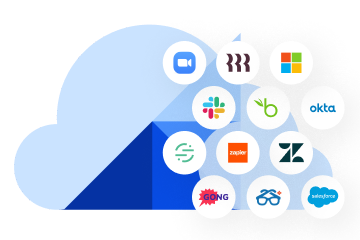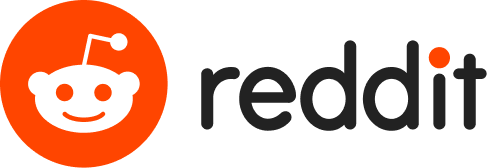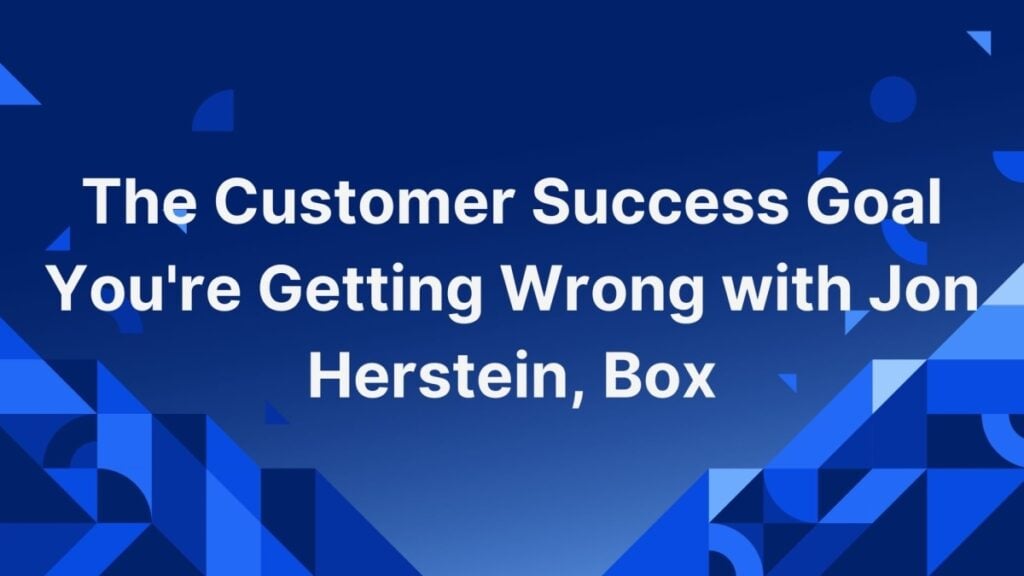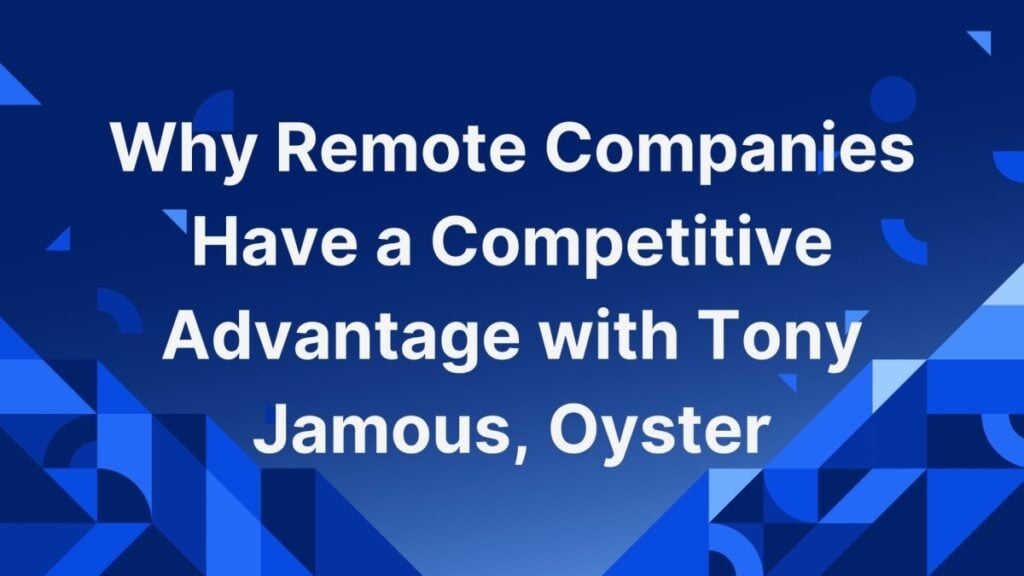-
 Resource Center
Resource Center
Discover enablement best practices and more in our resource center.
-
 Blog
Blog
Read the latest on enablement, learning and training trends.
-
 Podcast
Podcast
LEARN from the top leaders in SaaS.
-
 Videos
Videos
Watch videos and gain actionable insights from leading experts.
Season 1 Wrap: My 7 Big Learnings from Starting a Corporate Podcast (Ep. 38)
As we wrap up our inaugural season, we’re diving deep into what it takes to create and sustain a compelling corporate podcast. From unexpected challenges to surprising benefits, here are the top takeaways for aspiring podcasters.
In this episode of LEARN, Ted outlines seven key learnings from producing 37 episodes, discusses the nuanced balance between relationship-building and lead generation, and shares invaluable advice for setting realistic expectations for corporate podcasts. Whether you’re contemplating starting a podcast or looking to refine your current strategy, this season wrap-up is a must-listen.
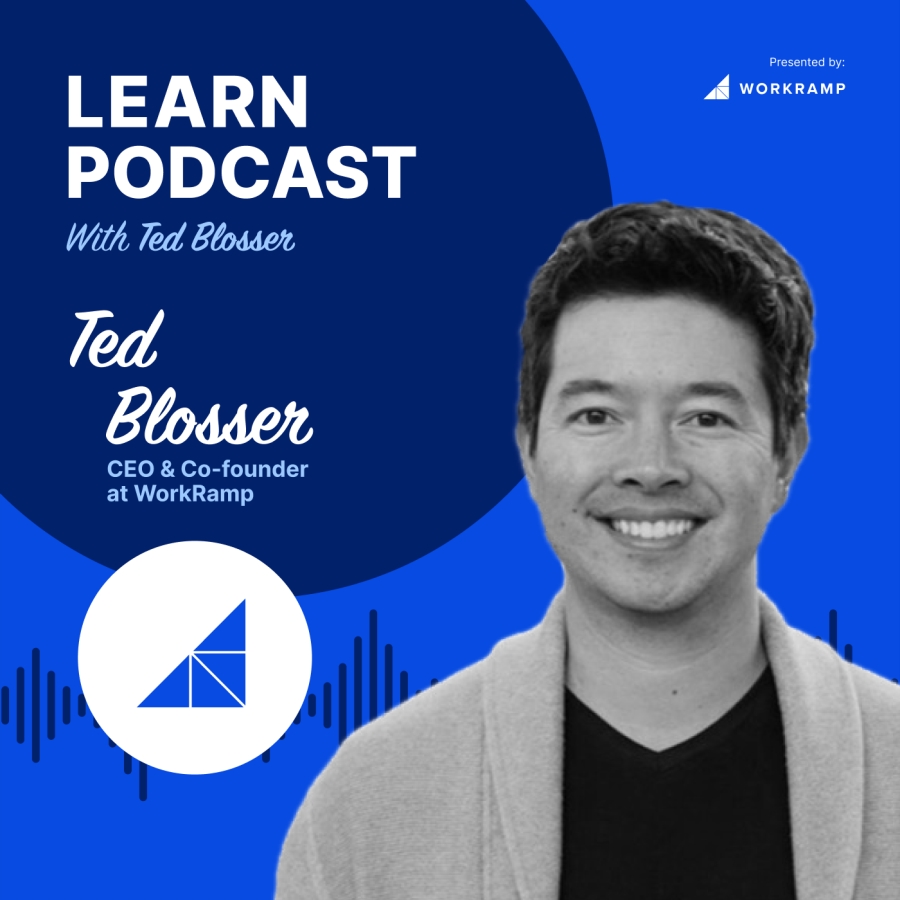
Key takeaways:
- Be prepared for the significant time investment required for running a corporate podcast, as each episode can take around 5 hours from preparation to promotion
- Avoid using a podcast as a direct lead generation tool, focusing instead on building genuine relationships with guests, partners, and industry leaders
- Adapt and experiment with your podcast format and content to discover what resonates most with your audience, while remaining consistent in your efforts
Tune in to explore Ted’s top takeaways he learned from starting a podcast.
Episode highlights
[05:54] Build great relationships through podcasting, be realistic
[06:56] Building brand, niche audience, and set realistic podcast goals
[10:20] Expressing gratitude
Resources:
Ted Blosser [00:00:00]: Welcome to the LEARN podcast, where we interview top leaders in tech and learn about how they're building the world's most innovative companies. I'm Ted Blosser, CEO and co founder of Work Ramp, the world's first learning cloud platform. Our mission is to help professionals reach their full potential through learning, and the Learn podcast is where we can learn from the best leaders at the top of their game. Please subscribe. Leave us a rating. We hope you enjoyed the episode. Hey, what's up everybody? Welcome back to the LEARN podcast. This is actually a podcast to wrap up season one, our inaugural season.
Ted Blosser [00:00:34]: Well, actually we did about 37 episodes. This was technically the 38th episode, but I want to record a wrap up episode to share some of the top learnings from doing a corporate podcast for the first time. And right now, what we're going to be doing is shifting our attention into a few new innovative content programs here at Warcraft. But this was a really great inaugural season. We hope to come back to you for season two, and we want to say thanks to all the guests who, who joined us on this journey. And so I want to share some of these learnings here. I got 123-4567 learnings I want to share. I just jotted them down as I was reflecting on season one and want to share it with you all.
Ted Blosser [00:01:14]: I think this is helpful for anybody who is looking at doing a corporate podcast and to see what they should expect. I had a lot of big learnings. Being a learning company, our value has always been improving. Had a bunch of big learnings on what we took away from the podcast. And if you're interested in starting your own podcast, what you should be prepared for. And so hopefully these learnings just give you a good sense of what it takes to run a successful corporate podcast. Again, we're excited to see if we can take this into a potential season two here and improve even more the next time around. So let's jump into it.
Ted Blosser [00:01:50]: So first one, this is one that was kind of surprising, but not too surprising is that a podcast is a lot more work than expected. If you're going to have your CEO or leader run a podcast, be prepared for the amount of work it's going to take. I was actually doing the calculation, the amount of time it takes for each individual episode, and I think it takes about an hour to go outbound and land a great guest. When you're looking through your network, making multiple asks for that person, an hour to prep, an hour to actually record, an hour to create your social post so it gets maximum impact. So every guest you're hosting, think about that as about 4 hours, even 5 hours if you're going to take some extra time and make an extra special episode. And so 5 hours per guest for us, that was multiplied across 37 episodes, ended up being a lot more time. It's not just something you can walk into and start recording without much prep or needing to do the outbound, the next one. The conventional wisdom on podcasts when I was asking people about should we do a podcast or not? Early on was a lot of people are like, oh, this is a great way to have another lead source for your organization.
Ted Blosser [00:03:02]: It's a great way to get new prospects in the fold, and you kind of trick them into becoming customers by having them on your podcast. What I realize is that's a very unnatural motion. And actually, frankly, I think bad advice for people thinking about your corporate podcast as a great way as a lead generation source. The reason being is people kind of see through those intentions and it just creates an awkward environment with your guests. And so sure, a rep can say, hey, I saw your CEO or a leader on your podcast, they can leverage that. But it's really awkward to invite a guest up and ask them to be a customer as well too, or pitch them on your own product in that whole flow. And so I felt very unnatural. So I never actually even made an ask of even people who were potentially prospects of Warcraft on the podcast.
Ted Blosser [00:03:51]: I focus it solely on let's get the best information across and make this a great experience for the guest. And if they became a customer later on, that's great too. But I never explicitly made it a lead generation source. So I highly actually recommend against doing a podcast if you're thinking that's a great growth lever for your business. So that goes against some common wisdom there. Third one on the flip side though, it's a great way to meet your customers and partners in a setting that's not, let's call it commercial. And so I was going through the podcast guests and I got to meet so many customers I never got the chance to meet in a setting where I'm not selling to them or working on client service issues or helping them with their work ramp partnership. I'll give a simple example.
Ted Blosser [00:04:37]: I worked with fare, I worked with Oyster, worked with Vitally, but these were all with their senior leaders. The CEO of Oyster, CEO of Vitally, the CPO of fair. These were people that I don't get to spend time with at our customer site, and I just got to get to know them at a more detailed level. So I highly recommend that. Same on the partnership front, we had udemy on here, we had to greed, we had Athena. We had leaders from all three of those partners where I got the chance to actually strengthen the partnership, get to know them better. So again, don't use the podcast as a sales resource, but use as a relationship building resource for your customers and partners. I highly recommend that and doing it outside of a typical setting as a vendor.
Ted Blosser [00:05:19]: All right, fourth one, the podcast was great for unexpected relationship building, where you could either reconnect with old contacts or just meet new, interesting people. I met so many new interesting people that are now in my network, and I had a great time getting to know them. Simple examples are g two. Patel. He's a top executive at Cisco. I worked with him for a brief moment at box, but we got to rekindle our relationship here. Everything was going at Cisco is a great way to reconnect with him. Kara from lattice was great, too.
Ted Blosser [00:05:54]: Establish a great relationship with her through the podcast. She was one of our first guests, and one that I recently filmed was Kathleen Pacini from Patreon, and she was my college classmate back in 2006 was the last time we saw each other, and we just coincidentally have ended up both in the HR tech and customer ed tech landscape. And so it was great to get to build some unexpected relationships. All right, fifth one is be realistic with your purpose and expectations of the podcasts. I'm a big podcast listener myself, and you see these amazing podcasts, like the Lex Friedman podcast, the Founders podcast. These are all podcasts acquired that have huge followings, and these people do their podcasts for a living. And what was kind of disheartening at first was it was like, hey, why isn't my podcast taking off like the Founder's podcast or how I built this? And I had to just remember that, hey, this is a corporate podcast. This isn't something I'm doing for a living.
Ted Blosser [00:06:56]: This serves a purpose of really building the work ramp brand, getting to meet a lot of great people, and also instilling some great knowledge out into the community. And so when I really took a objective look at what I was trying to do and said, look realistically, this is a corporate podcast. It's not going to get this immense following like all the other podcasts I listen to, but it will be helpful for a certain niche of people and for people who follow the work ramp brand. Then I became at peace with the results we were seeing, and I had just had much better expectations of a corporate podcast in general. That being said, you should try to have a great podcast. We try to be one of the best corporate podcasts. Those became our new goals, but our sights weren't set on trying to become the next how I built this. And so just make sure you have a really realistic perspective what your podcasts should be.
Ted Blosser [00:07:48]: This 6th one's a minor one, but this is kind of unexpected. I'm a big believer in analytics and understanding where to spend your time. And one of the big things I realized is that analytics are tough in the podcast environment. Analytics, especially with Apple Podcasts, you don't really get detailed analytics on drop off rates. Who's actually listening. You head into this if you're new in the space, thinking everything's like Google Analytics, where you can analyze every second of every podcast. And the podcast world is a little more opaque, more opaque than I thought. That's why everyone talks about listens and downloads.
Ted Blosser [00:08:23]: And so it was really hard for me personally to understand what was resonating and what I should do more or less of. But that was an interesting learning, is just be ready for a world where analytics aren't as granular as you expect them overall. And then the last one, this is probably my favorite learning, is be okay with change. We did again about 37 episodes, and throughout that time, we would meet biweekly with our internal podcast team. And this is over the span of about, I believe, eight to ten months or so. And we made about three or four major kind of thematic pivots. And we tried different types of guests as well, too. So we've tried practitioner series, we tried monologue episodes with just me.
Ted Blosser [00:09:07]: We tried very high level people like CEO's, and so we tried many different things. And even the guests we were asking on had shifted a few times as well. But the big thing is, make sure you're okay with that change. Just make sure you're consistent throughout your seasons or throughout the lifetime of your podcast itself, and be okay with that change. You don't need to stick with one strategy forever. Always try to mix things up and see the results. And so hopefully those were helpful tips if you're thinking about doing a corporate podcast. I thought it was a great way to wrap season one.
Ted Blosser [00:09:41]: We have some new amazing content programs coming out with work ramp that we're excited to be working on. We're excited to maybe potentially come back here for season two, but hopefully you enjoyed the 37 episodes that we recorded with some of the best leaders in hr sales and also customer success. All right, that's a wrap. We'll talk soon. Thanks for listening to the learn podcast. If you're a fan of the podcast, do us two favors. One is subscribe to it so you can get the latest update of our most recent episodes, and two, write a short review of the podcast. This helps us get discovered in the broader podcast community.
Ted Blosser [00:10:20]: Thanks again.
_Nav.png?width=360&height=240&name=Employee_LC)_Nav.png)
_Nav.png?width=360&height=240&name=Customer_LC)_Nav.png)
